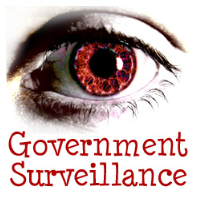State Plans to Share License Photos Far and Wide Despite DMV Objection

The giant computer network that links law enforcement agencies across California—sharing oodles of personal information from its expanding database—is close to hooking up with the federal government’s own citizen surveillance system and those of other states despite some apparent legal hurdles.
The Electronic Frontier Foundation (EFF), a nonprofit digital civil liberties group, warns that preparation for the questionable privacy intrusion is buried beneath layers of acronyms, as CLETS seeks to connect to NLETS under the direction of CAC and SSPS. Those are not generally familiar notations, but their influence is sweeping.
The state Department of Motor Vehicles (DMV) has repeatedly told members of California’s Department of Justice (DOJ) that state law forbids the sharing of driver’s license photos with outside sources, including the federal government, or subjecting them to facial recognition software. The DMV also said it would not be able to keep track of who accessed the photos and why, as required by law.
However, EFF wrote (pdf) to state Attorney General Kamala Harris and others, “CAC/SSPS appears headed toward a process of sharing facial images held by the California Department of Motor Vehicles (DMV) and enabling facial recognition for investigative purposes, despite DMV concerns that some of these steps may be insecure and inconsistent with existing statutory authorization.”
The letter protested the initiative taken by the advisory groups to actually begin building an infrastructure, and reach out to other law enforcement agencies without the participation of other stakeholders, like civil libertarians.
The DMV photos are already included in the DOJ’s Cal-Photo database. That, in turn, is part of the data-rich California Law Enforcement Telecommunications System (CLETS), which the department dearly wants to integrate with other states and the federal government.
To solve this apparent conundrum, the law-enforcement-dominated CLETS Advisory Committee (CAC) and its Standing Strategic Planning Subcommittee (SSPS) are apparently ignoring the DMV and moving ahead with establishing the connection, according to EFF.
SSPS explained in a grant application for federal funds to establish one-way acceptance of photos from other states why they needed the money:
“The SSPS has determined that moving forward to establish the necessary infrastructure to electronically receive driver’s license photographs from out of state would be highly beneficial and also provide incentive to the DMV to take action on this topic.”
The DMV had told them three times in writing, by EFF’s limited count, that there were a number of laws and regulations that barred the kind of photo sharing sought by the DOJ, and the Legislature would have to be involved if that were to change. Yet, SSPS’s Goal 8 is: “Expand Cal-Photo’s capability to share photos on a national basis; and, deploy facial recognition as an investigative tool.”
The DMV’s legal opinion (pdf), citing 13 provisions of law that would be violated, was not universally accepted. The minutes from the CAC’s meeting last December 2 notes that Chairman Sam Spiegel, past president of the California Peace Officers’ Association, “believed a review of the statutes would indicate that access for law enforcement purposes would probably be appropriate.”
Meanwhile, the SSPS obtained $50,000 from NLETS to begin the one-way linkage.
–Ken Broder
To Learn More:
Obscure California Committee Moves to Expand How Police Access and Use DMV Photos (by Dave Maass, Electronic Frontier Foundation)
GSA Adds Federal Vehicle Data to Nationwide Database (by Dan Verton, FedScoop)
Virtual Security a “Hair-Raising” Challenge for Law Enforcement Net (by William Jackson, GCN)
San Diego County Quietly Scanning Faces for Its Growing Surveillance Database (by Ken Broder, AllGov California)
- Top Stories
- Controversies
- Where is the Money Going?
- California and the Nation
- Appointments and Resignations
- Unusual News
- Latest News
- California Forbids U.S. Immigration Agents from Pretending to be Police
- California Lawmakers Urged to Strip “Self-Dealing” Tax Board of Its Duties
- Big Oil’s Grip on California
- Santa Cruz Police See Homeland Security Betrayal in Use of Gang Roundup as Cover for Immigration Raid
- Oil Companies Face Deadline to Stop Polluting California Groundwater





